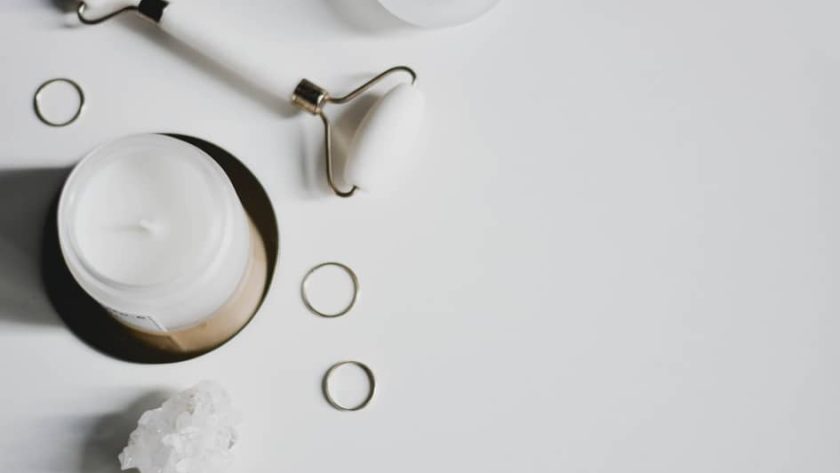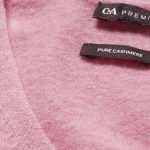As the third quarter comes to its end, beauty has continued to welcome a dynamic market, swarming with acquisitions, team transformations and category expansions that are keeping observers on their toes. Fashion brands continue to eye a move into this resistant category, while the big players that dominate it proceed to cement their position.
IPOs, new categories and first steps
Growth seems to be on the minds of beauty’s movers and shakers, many of whom are well on their way through ongoing strategies that target new avenues expansion opportunities. While Glossier made its intentions known through its first international partnership with Sephora UK, Coty looked to leverage its current “strong momentum” through expansions into untapped markets. This came on the heels of the company raising its outlook for FY23, a similar move to that of Elf, which reported a significant 76 percent increase in sales for Q1. With the market appearing to remain buoyant, talk of IPO filings were circulating. While Coty set about securing a dual listing on Paris’ stock exchange, Puig has been reporedly preparing for its own listing. Oddity, on the other hand, took its first steps into the market, launching an IPO that garnered it a 2.3 billion dollar capitalisation.
Meanwhile, for those in fashion, it is clear that this dynamic market is expected to keep delivering, causing a slew of movement between the two sectors. Prada was among those setting about exploring beauty on a deeper level, with the release of its first makeup and skincare line, similar to Rabanne, which also expanded on fragrances to now offer its own makeup collection. For Gabriela Hearst, on the other hand, the quarter marked an entry into the fragrance industry with the launch of the brand’s debut perfume. Marc Jacobs, meanwhile, unveiled that it was set to return to beauty through an expanded partnership with Coty. Likely observing such commotion, luxury fashion conglomerate Richemont obviously opted to get in on the fun too, launching its own beauty division headed by a dedicated CEO.
Downfalls and antitrust probes
While the abundance of market expansions and IPOs may paint a picture of a highly stable market, there were still some shifts that contrasted such an image. British beauty and homeware chain Wilko was among the many British retailers filing for administration, with its slew of stores currently on the brink of closure, meanwhile parent of Trestique, Tomia Beauty, filed for bankruptcy in a US court amid a dispute between the founders. Trouble was also seen at Natura, which weeks after securing a sale for Aesop, said it was mulling “strategic alternatives”, and possibly a sale, for The Body Shop, where revenue had recently dropped 12.5 percent. Farfetch was also believed to be eyeing an escape, as media speculated that the luxury retailer was preparing to exit the prestige beauty industry just over a year on from joining.
Trouble had also been brewing at Revolution Beauty, which found itself embroiled in a public altercation with majority shareholder Boohoo Group, which attempted, and later achieved, a takeover of its executive team. In addition to this, the UK’s FCA then announced the launch of an investigation into Revolution for potential market breaches made last year when its leadership was found to be inflating sales. In the US, the FDA was another appearing to be cracking down on the industry, outlining draft guidelines that aimed to strengthen the safety of cosmetics. Meanwhile, the European Commission was also putting pressure on brands amid efforts to phase out animal testing, with a new framework set to restrict such practices.
Portfolio and team refreshes
This didn’t stop beauty, though, as evidenced by the string of notable hirings and firings throughout the industry, as brands revitalised their leadership teams. While Revlon’s CEO and president announced her departure following the brand’s rocky road through bankruptcy, the Walgreens Boots Alliance also revealed that its CEO would be stepping down as the company undergoes a repositioning. Others were on a hiring spree over the past quarter, including newly listed Oddity, which named a new CEO for its own brand SpoiledChild. Nyx Professional Makeup also appointed a global brand president, while L’Oréal onboarded a group of new executives to tackle the increasingly complex Chinese market.
Acquisitions were another big part of the quarter, and were largely led by the giants of the sector. Kering, for example, snapped up perfumery Creed in a reported 3.8 billion euro deal, a figure that was later confirmed when the luxury conglomerate revealed it had issued a bond loan of that amount in order to finance the acquisition. Elf also made a substantial 355 million dollar acquisition of skincare brand Naturium as part of its efforts to democratise the beauty industry, while Kao took over self-tanning brand Bondi Sands to build on its mission of becoming a leader in the sector. Coty, meanwhile, set about selling its 150 million dollar stake in hair care company Wella as part of its deleveraging strategy.



